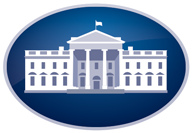

The President’s Weekly Address post is also an Open News Thread. Feel free to share other news stories in the comments.
From the White House – Weekly Address
In this week’s address, President Obama highlighted wage growth over the course of his presidency. Since 2012, real wages have grown about 20 times faster than they did for almost three decades between 1980 and 2007. Last year, typical household income rose by $2,800 – the single largest increase on record. Across every race and age group in America, incomes rose and poverty rates fell; and 3.5 million people were lifted out of poverty – the largest one-year drop in the poverty rate since 1968. Thanks in part to states and communities that have raised the minimum wage, lower- and middle-income families saw the biggest boost in incomes. Although we’ve made significant progress, the President said more work needs to be done to strengthen the middle class – and this starts with a Congress that will put politics aside and act on commonsense ideas.
Transcript: Weekly Address: Continuing to Strengthen the Middle Class
Remarks of President Barack Obama
Weekly Address, The White House, October 8, 2016Hi, everybody. Eight years ago, we were in the early stages of what would become the worst economic crisis of our lifetimes. It was a scary time. We didn’t even know where the bottom would be.
But thanks to your hard work and determination, and some smart decisions we made, today’s a different story. We turned a recession into a record streak of job growth, creating more than 15 million new private-sector jobs and cutting the unemployment rate in half.
Getting wages to rise again was a harder task. Even before the recession, working Americans faced decades of slow wage growth. Between 1980 and 2007, real wages barely grew each year. But because the policies we’ve put in place are working, working families are finally seeing their wages and incomes rise, too. Since 2012, wages have grown around 20 times faster than they did over the almost three decades between 1980 and 2007.
Last year, folks’ typical household income rose by $2,800. That’s the single biggest increase on record. And across every race and age group in America, incomes rose and poverty rates fell. We lifted 3.5 million people out of poverty – the largest one-year drop in the poverty rate since 1968.
What’s more, lower- and middle-income families saw the biggest boost in incomes – in part because 18 states and the District, as well as more than 50 communities, have given millions of Americans a raise by raising the minimum wage. And states that have raised their minimum wage have seen stronger earnings growth in low-wage jobs compared to states that have not.
Strengthening benefits at work helps, too. Last week, for example, I took action to make sure up to one million more workers can earn seven days of paid sick leave on the job. We’re also helping states expand opportunities for workers to save for retirement. But there’s a lot more we should do to strengthen the middle class and help more Americans get ahead. Making childcare more affordable, for example. Making sure women earn equal pay for equal work. Guaranteeing paid family and sick leave. Increasing the federal minimum wage. Preparing workers for the jobs of the future. And closing tax loopholes that benefit just the wealthy and big corporations.
Now we just need a Congress that cares about these issues – one that will finally put politics aside and act on these commonsense ideas. That’s how we’ll build on the progress we’ve made over these past eight years, and achieve one thing we should all agree on – securing a brighter future for all our children.
Thanks everybody. Have a great weekend.
Bolding added.
~

President Obama:
Wait, wait, call on me! I know exactly where we can find a Congress that cares about these issues – on our ballots this election cycle. Vote for Democrats … up and down the ticket and give President Hillary Clinton a Congress that will work for the American people instead of for the special interests.
President Obama in The Economist – The way ahead:
He goes on to outline his ideas on the steps the next president should take – a progressive vision. He concludes with this:
Labor Secretary Tom Perez on an economy that works for everyone:
First Lady Michelle Obama on her White House Kitchen Garden and Let’s Move initiative:
Remarks:
Let’s pass this on to a Democratic president, one who would cherish that garden and celebrate the energy that went into creating it.
From the White House: Dedication of the White House Kitchen Garden
More at the link.